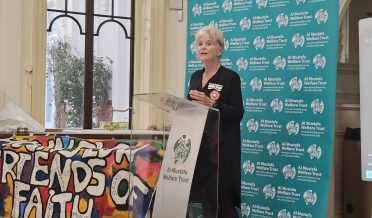Report/
Nisar Ahmad
The Home Office published its New Plan for Immigration 2021/2022 setting out details of the government’s delivery priorities for this period.
Last year, significant changes were introduced to the immigration policy. The UK left the EU on 31 January 2020 and entered a transition period which lasted until 31 December 2020. This led to the application of UK immigration rules to newly arriving migrants, including those from the EU. During the transition period, the Home Office also implemented a new points-based immigration system. The ‘New plan for immigration 2021/2022’ strategy statement, outlines the government’s intentions to build on reforms introduced last year and further transform the UK immigration system.
The UK government aims to provide a streamlined and seamless experience for people coming to the UK, whilst ensuring national security. The Home Secretary, Priti Patel said the new immigration strategy is ‘underpinned by a clear ambition: to put in place the world’s most effective border system’.

EU Settlement Scheme
The EU Settlement Scheme ensures EU citizens and their family members who were resident in the UK before the end of the transition period can get the UK immigration status they need to continue living, working, and studying in the UK beyond 30 June 2021. The New Plan for Immigration 2021/2022 states that employers and landlords will continue to be able to accept the passports and identity cards of all EU citizens as evidence of their right to work or right to rent until 30 June 2021. There will be no legal requirement on employers and landlords to carry out retrospective checks, though they are free to do so. By summer 2021, all Border Force staff will have the ability to check whether an EU citizen has applied for or been granted status under the EUSS.

Simplification
The strategy states that the Home Office intend to simplify immigration rules and processes, making them as user-friendly as possible. The rules and guidance for the Graduate and International Sportsperson routes, due to be introduced in 2021, have been drafted applying simplification principles. They will follow a consistent structure and applicants will find it easier to navigate as opposed to the previous Rules. The Home Office also stated its intention to simplify the Family, Private Life, Settlement and Returning Residents routes.

Simplified questions on application forms
more flexibility on how an applicant can show that they meet the requirements for their route: allowing applicants who have gained GCSE/A Level or Scottish Highers in English, while at school in the UK, to rely on this to prove their English language ability.
allowing applicants to show they meet maintenance requirements by relying on a wider range of accounts.
allowing applicants to upload their evidence from home, reducing the need for applicants to visit Visa Application Centres.
How are points awarded?
To qualify for a visa, migrant workers who want to move to the UK will have to qualify for 70 points.
Having a job offer from an approved employer for a skilled job and being able to speak English will give 50 points. The applicant can achieve the remaining 20 points if they are due to be paid at least £25,600 a year.
They can also gain extra points for having better qualifications (10 points for a relevant PhD, or 20 points for a PhD in science, technology, engineering or maths) or an offer of a job in which the UK has a shortage (20 points), even if it doesn’t pay as much money.
Certain jobs in health or education still merit 20 points even if the salary is less than £25,600. The applicant must be paid at least £20,480, and in line with set amounts for jobs in the UK’s four nations.
Sponsorship
The Home Office intends to deliver a digital, simplified, and modern sponsorship system that enables a more efficient operation, for users and the Home Office, and encourages compliance.
As part of its long-term ambition, the Home Office will harness new technological innovations to:
speed up end-to-end processing, from applying for a sponsor license to a worker or student being approved for a visa.
improve a sponsor’s experience of using the sponsor system, reducing the burden placed on them to maintain their license and providing functionality and transparency. prevent abuse of the system, including effective management of information risk.
New and reformed immigration routes
Key reforms will be introduced to immigration routes in 2021 as part of the government’s plan to ‘Build Back Better.’ The new targeted reforms will help to attract and retain highly skilled people, particularly in academia, science, research, and technology.
The reforms include
expanding the Global Talent route to introduce a new pathway for individuals with highly prestigious awards or prizes (this came into effect on 5 May 2021).
introducing a new, unsponsored points-based route to attract the brightest and best to the UK in Spring 2022. This route will place particular emphasis on the very high skilled and academically elite.
creating a single, sponsored Global Business Mobility route by Spring 2022 which will simplify the UK immigration offer for business by bringing together, reforming and expanding several existing routes that exist for this purpose.
Delivering a fully digital system
The strategy statement makes it clear that the long-term plan is to move to a fully digital immigration system. This will remove the use of physical documents to demonstrate status. The aim is to have a fully digital system in place by the end of 2024.
Current priorities include
improving the online immigration status service and enhancing support for those who require assistance to use this service (mainly EEA citizens and BN(O)s at present).
putting in place system-to-system services that will allow other Government departments and public bodies to check immigration status information direct with the Home Office, instead of the individual having to prove these rights via the online service when accessing public services.
laying the groundwork for wider reforms including the future introduction of Electronic Travel Authorisations (ETAs).
Border and security
Priti Patel said that ‘security is at the very heart’ of our New Plan for Immigration 2021/2022.
The government aims to deliver the world’s most effective border, one that enables prosperity and enhances security for Global Britain. This work is aligned with the 2025 UK Border Strategy that was published on 17 December 2020.
The 2025 UK Border Strategy has a clear objective to identify and contain threats to biosecurity and public health pre-arrival and at the point of arrival in the UK.
The Immigration Rules laid on 22 October 2020 included revised and simplified rules setting out how the powers to refuse or cancel permission on suitability grounds are to be exercised. The main policy changes which apply to most routes are:
applying mandatory grounds for refusal on grounds of criminality to serious and persistent criminals whose presence is not conducive to the public good, to ensure the UK is protected from those who pose the greatest threat to society.
refusing entry to anyone seeking to enter as a visitor or coming to the UK for less than 6 months if they have received a custodial sentence of less than 12 months or a non-custodial sentence such as community service unless a period of at least 12 months has passed.
Government’s longer-term vision for the UK’s immigration system beyond 2022
The 2025 UK Border Strategy sets out an ambitious plan to transform the border over the next five years and beyond to create the most effective border in the world.
The government will introduce a universal ‘permission to travel’ requirement which will require everyone wishing to travel to the UK (except British and Irish citizens) to seek permission in advance of travel.
As part of the universal permission to travel, an Electronic Travel Authorisation (ETA) scheme will be introduced. The ETA scheme will be fully in place by the end of 2024.
Visitors and passengers transiting through the UK who do not currently need a visa for short stays, or who do not already have an immigration status prior to travelling, will apply for an ETA.
Priti Patel stated that the new plan ‘will make it easier to identify potential threats before they reach the border, through targeted and effective interventions from co-ordinated multi-agency operations.’
Over the next four years, the government intends to implement transformational change for everyone who interacts with the immigration system and crosses the border. It aims to deliver a fully end-to-end digital customer experience for people from the way they apply online, how they prove their identity, how they provide evidence that they meet the relevant criteria, to how they receive and use proof of their status to cross the border and demonstrate any entitlements in the UK.







